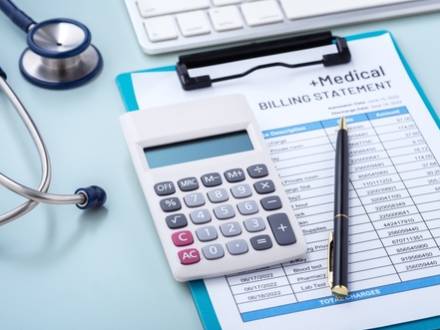What Counts as Federal Healthcare Fraud?
 Federal healthcare fraud cases can lead to large fines, loss of your professional license, and even prison time. Prosecutors pay extra attention to cases involving Medicare or Medicaid since those programs are funded by taxpayers. If you have been accused of healthcare fraud, you should seek legal counsel immediately. Our Dallas, TX federal healthcare fraud defense lawyers will explain your rights and help you build a defense.
Federal healthcare fraud cases can lead to large fines, loss of your professional license, and even prison time. Prosecutors pay extra attention to cases involving Medicare or Medicaid since those programs are funded by taxpayers. If you have been accused of healthcare fraud, you should seek legal counsel immediately. Our Dallas, TX federal healthcare fraud defense lawyers will explain your rights and help you build a defense.
Defining Federal Healthcare Fraud
Under 18 U.S.C. § 1347, it is illegal to knowingly create or carry out a scheme to cheat a healthcare program. These programs include both private insurance and government-funded plans like Medicare and Medicaid. The word to remember here is "knowingly." Prosecutors must prove you acted intentionally. Honest mistakes or clerical errors are not criminal fraud. For example, a coding error or a billing misunderstanding does not make someone guilty of fraud.
Common Healthcare Fraud Schemes Prosecuted by Federal Authorities
Federal investigators often look for repeated patterns of suspicious billing or activity. Some of the most common examples include:
-
Billing for services not provided: This happens when a provider charges for tests or visits that never occurred.
-
Upcoding: This occurs when a claim is submitted for a more expensive procedure than what was actually performed.
-
Unbundling: This practice of splitting services that belong on one bill into separate charges is done to collect more money than what is allowed.
-
Phantom patients: This refers to creating claims for fictitious patients who were never treated.
-
Prescription drug fraud: This happens when unnecessary prescriptions are written to generate profit.
If there is enough evidence to indicate you did any of the above, you could face serious criminal penalties and long-term consequences.
The Role of Medicare and Medicaid in Federal Healthcare Fraud
Fraud against Medicare and Medicaid is a top concern for the government. The False Claims Act allows the government to sue people or companies that ask for payment using false claims.
When Medicare or Medicaid billing is involved, cases can quickly move from civil penalties to criminal charges. Even small overbilling mistakes may attract government attention. Keeping accurate records and having a compliance program are the best ways to avoid government scrutiny.
Understanding the Anti-Kickback Statute and Stark Law
Federal law also limits financial relationships in healthcare. The Anti-Kickback Statute makes it illegal to give or accept money or benefits for patient referrals. This rule applies to services paid for by Medicare or Medicaid. For example, a lab cannot pay a doctor to send patients for blood tests that will be billed to Medicare.
The Stark Law focuses on self-referrals. It bars doctors from referring patients to businesses where they or their family members have a financial stake. Both laws are designed to prevent medical decisions from being influenced by money. Violating these laws can lead to large fines. A healthcare provider found guilty of this could lose the right to bill Medicare or Medicaid. In serious cases, criminal charges may follow.
How To Fight a Federal Charge for Healthcare Fraud
Defense strategies against healthcare fraud charges vary depending on the details of the case. For example, they may include showing that billing errors were accidents, not intentional. Lawyers can also prove that the services billed were real and medically needed. Experts can be used to explain coding practices or treatment choices. An experienced attorney can challenge whistleblower claims or point out problems with government data. In some situations, your attorney may try to negotiate for lower penalties.
These cases often involve healthcare rules and criminal law. The best way to protect yourself is to work with an attorney who understands both areas.
Contact a Dallas, TX Healthcare Fraud Defense Attorney
At Spencer & Associates, our team has successfully handled very high-profile fraud defense cases. We work to resolve issues without going to trial when possible, but we are prepared to fight in court whenever needed. Call us today at 214-385-8500 to schedule your free consultation with our experienced Dallas, TX healthcare fraud defense lawyers.




